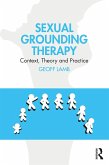Dieser Download kann aus rechtlichen Gründen nur mit Rechnungsadresse in A, B, BG, CY, CZ, D, DK, EW, E, FIN, F, GR, HR, H, IRL, I, LT, L, LR, M, NL, PL, P, R, S, SLO, SK ausgeliefert werden.
Marvin R. Goldfried is a distinguished professor of Psychology at Stony Brook University, Stony Brook, New York, USA
'A truly integrative model of psychotherapy from conceptualization through treatment! With illustrative case studies, Dr. Meier and Ms. Boivin's developmental model of Self in Relationship Psychotherapy goes beyond symptom management, guiding therapists to a deeper understanding of their clients' presenting issues, enhancing their ability to help make meaningful lasting change. This book will be a frequent reference for our team!'
Dr. Rebecca Moore is a clinical psychologist and director of the Kanata Psychology and Counselling Centre
'This is a truly refreshing and remarkable piece of work. The Self-in-Relationship Psychotherapy approach identifies core unmet self, relational and physical intimacy needs as the root of psychological dysfunction. It is a developmental and relational approach to psychotherapy that integrates complex theories to promote an understanding of how early developmental relationships and experiences impact later adult functioning. The theory underlying the approach provides clinicians with an effective lens to conceptualize and treat the most difficult cases presented in therapy. Of the numerous approaches I have learned throughout my career, the Self-in-Relationship Psychotherapy approach has been game changing in my academic, supervision and clinical practice.'
Shelley Briscoe-Dimock is a clinical professor and supervisor based in Ottawa, Ontario, Canada
'When I started graduate studies in psychotherapy, I was curious about understanding the client's struggles in-depth whilst having a structure in place that is rooted in theory and is easy to grasp. This book came at the right time, and I can confidently say that it has been extremely helpful in grounding me in addressing clients' core struggles with a special focus on clients' core needs. In this way, this book helped me look beyond behavioral challenges and aided me in addressing the heart of the matter in a timely manner. I highly recommend this book, as a must read, to clinicians and to graduate students in psychotherapy.'
Sogol Kafi is a Ph.D. candidate at Saint Paul University, Ottawa, Ontario, Canada









